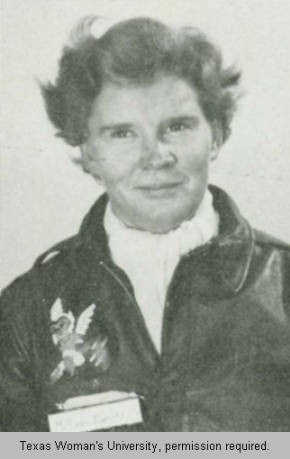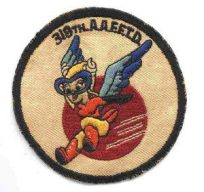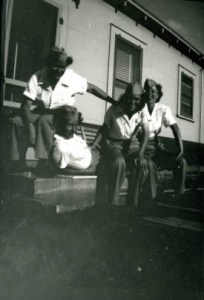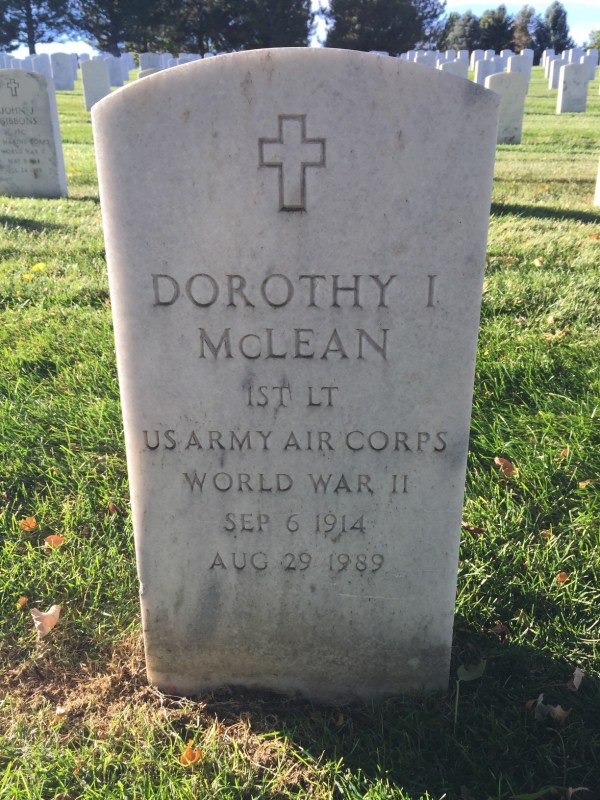Dorothy “Rusty” McLean (1914 – 1989) was not afraid to reach for the stars! Born in Florenceville, New Brunswick (Canada) on Sept. 6, 1914, she was educated in Framingham and went on to attend the University of Denver. She was a graduate of Framingham’s civilian pilot training program, and underwent instrument training in Michigan as well as officers training in Orlando, Florida. She was eventually assigned to Weather Wing Headquarters in Ashville, N.C. where she flew weather reconnaissance using B25’s, C 45’s, and UC 78’s.

Framingham had two airports in earlier years. One was at the Musterfield and the other, Gould Field, was at the Adesa Auction site. As the United States entered World War II , the need for people experienced in aviation was evident and many in Framingham would answer that call. As more men were needed over seas for combat duty, some female pilots advocated for the U.S. to find and recruit women ferry pilots to take over their positions. Finally, after the bombing of Pearl Harbor these proposals were adopted and over 25,000 women applied with 1,074 being chosen for the Women’s Auxiliary Ferrying Squadron, (WAFS)-Dorothy among those chosen. Their main job was to fly supplies from factories to various military bases. The future of military aviation depended on how these women performed in all aspects of their lives. In August of 1943, the WAFS would join forces with a similar band of female pilots called the Women’s Flying Training Detachment (WFTD) and would come to be known as the Women’s Airforce Service Pilots (WASP).

After leaving the service, according to Betty Stagg Turner in the book Out of the Blue and Into History, Dorothy continued as an instructor, a corporate pilot for a mining corporation and a pilot for a feeder airline. She retired from Martin Marietta Aerospace and enjoyed traveling through Europe. Although they had not been given military status and instead were classified as civilian pilots, Dorothy and the other WASPs showed that women were capable of directly participating in the war effort and were ready and willing to take on some of the most challenging tasks to ensure victory. The WASP were finally awarded veteran status in 1977, and her family received the Congressional Gold Medal in 2009. Rusty passed away August 29, 1989 and is buried at Fort Logan National Cemetery, Denver, Colorado.


Special thanks: Doug McLean for genealogy research.
Bibliography
Dewar, Martha E. and M. Joan Gibert, Framingham Historical Reflections The Town of Framingham Massachusetts, 1974.
Herring, Stephen, Framingham: An American Town, The Framingham Historical Society, The Framingham Tercentennial Commission, 2000.
Rickman, Sarah Byrn. “The WAFS…and How They Began, ”Wasp News, Special Issue, vol. LIV, no. 2, Texas Woman’s University, Fall 2016, p. cover.
Turner, Betty Stagg, Out of the Blue and Into History, Aviatrix Publishing, 2001. “Wasp Last Flight.” Texas Woman’s University Class News, vol. 111, no.1, Winter 2016, p. 19.
“Wasp Last Flight.” Texas Woman’s University Class News, vol. 111, no.1, Winter 2016, p. 19.